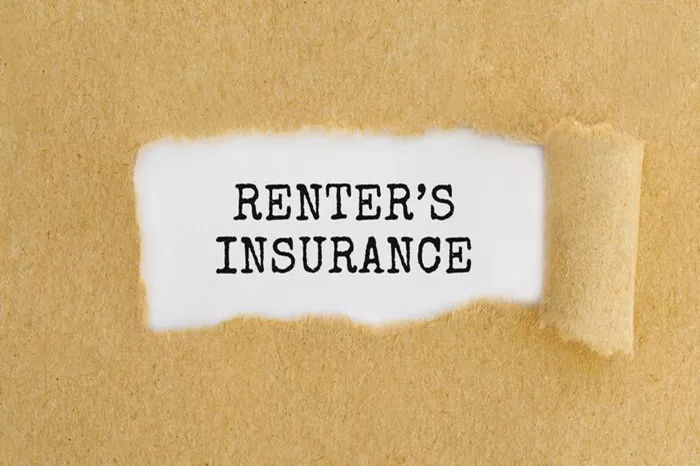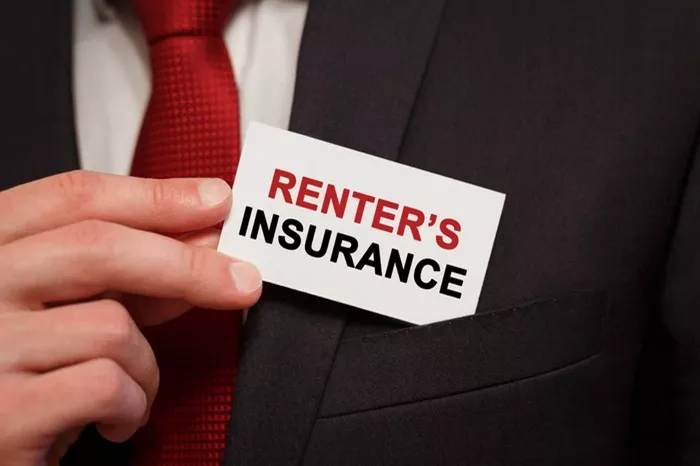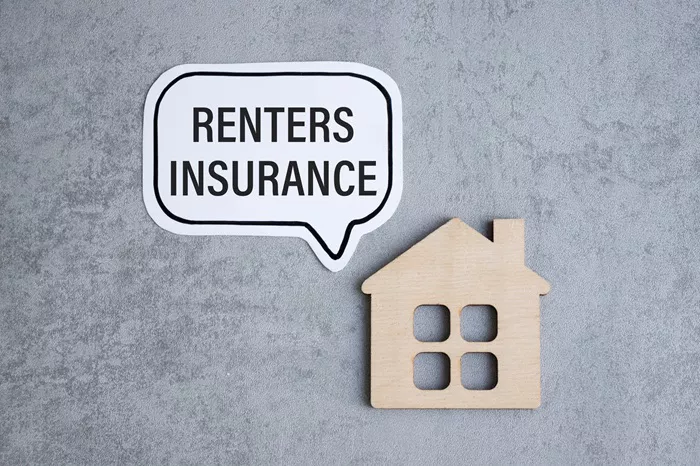Renters insurance is a crucial financial safeguard for individuals who do not own their homes but wish to protect their personal belongings and liability. Although it is often more affordable than homeowners insurance, various factors can influence the cost of renters insurance. Understanding these factors can help renters make informed decisions and potentially reduce their premiums. In this article, we will explore the key elements that affect the cost of renters insurance and provide insights into how to manage these costs effectively.
Location of the Rental Property
The location of your rental property is one of the most significant factors that affect the cost of renters insurance. Insurance companies assess the risk associated with your location when determining your premium. Here are some key aspects of location that influence the cost:
1. Crime Rates: Properties in areas with high crime rates, particularly for theft and vandalism, tend to have higher insurance premiums. This is because the risk of filing a claim due to stolen or damaged property is greater.
2. Natural Disasters: If you live in an area prone to natural disasters such as hurricanes, earthquakes, or floods, your insurance costs may be higher. This is because the likelihood of your property being damaged or destroyed by these events is increased.
3. Proximity to Fire Stations: Being close to a fire station can reduce your renters insurance premium. If a fire occurs, a nearby fire station can respond more quickly, potentially minimizing damage.
4. Neighborhood Characteristics: The overall safety and condition of your neighborhood can also play a role in determining your insurance costs. Well-maintained, low-crime areas typically have lower premiums.
Type of Coverage Selected
The type and amount of coverage you choose significantly impact the cost of your renters insurance. Renters insurance policies typically include three main types of coverage:
1. Personal Property Coverage: This coverage protects your personal belongings, such as furniture, electronics, clothing, and other valuables, from covered perils like fire, theft, and vandalism. The more coverage you opt for, the higher your premium will be. Additionally, high-value items like jewelry or art may require additional coverage, further increasing the cost.
2. Liability Coverage: Liability coverage protects you if someone is injured in your rental property or if you accidentally damage someone else’s property. The standard liability coverage limit is typically $100,000, but you can increase this limit for an additional premium. Higher liability coverage limits will raise the cost of your policy.
3. Additional Living Expenses (ALE) Coverage: ALE coverage helps cover the costs of temporary housing and other living expenses if your rental becomes uninhabitable due to a covered peril. The extent of ALE coverage you select can also affect your premium.
Deductible Amount
The deductible is the amount you agree to pay out of pocket before your insurance coverage kicks in. The deductible you choose can significantly influence the cost of your renters insurance policy.
1. Higher Deductibles: Choosing a higher deductible can lower your premium since you are assuming more financial responsibility in the event of a claim. However, it’s essential to ensure that you can afford to pay the deductible if you need to file a claim.
2. Lower Deductibles: Opting for a lower deductible will increase your premium, but it reduces your out-of-pocket expenses when filing a claim. This option may be preferable for those who want more immediate financial protection.
Credit Score
Your credit score is another critical factor that affects the cost of renters insurance. Insurance companies often use credit-based insurance scores to predict the likelihood of a policyholder filing a claim. Individuals with higher credit scores typically receive lower premiums, while those with lower scores may pay more. Here’s why:
1. Risk Assessment: Insurers view individuals with good credit scores as more responsible and less likely to file frequent claims. As a result, they offer lower premiums to these policyholders.
2. Discounts: Some insurance companies offer discounts to policyholders with excellent credit scores, further reducing the cost of renters insurance.
3. Improving Your Credit Score: To potentially lower your insurance costs, consider taking steps to improve your credit score, such as paying bills on time, reducing debt, and regularly checking your credit report for errors.
Claims History
Your personal claims history and the claims history associated with your rental property can influence your renters insurance premium. Insurance companies use claims history to assess the risk of future claims.
1. Personal Claims History: If you have a history of filing insurance claims, especially for renters insurance, you may be seen as a higher risk, leading to increased premiums. Insurers believe that individuals who have filed claims in the past are more likely to file again.
2. Property Claims History: The claims history associated with the rental property itself can also affect your premium. If the property has a history of frequent claims, such as water damage or theft, insurers may consider it a higher risk, resulting in higher premiums for tenants.
3. Managing Claims: To avoid increasing your premiums, consider carefully whether filing a small claim is worth it. In some cases, paying for minor repairs or replacements out of pocket may be more cost-effective in the long run.
See Also: What Can You Claim on Renters Insurance
Security and Safety Features
The presence of security and safety features in your rental property can reduce the cost of your renters insurance. These features help mitigate the risk of theft, fire, and other perils, making your home less risky to insure. Common security and safety features include:
1. Alarm Systems: Homes equipped with burglar alarms, fire alarms, and carbon monoxide detectors are less likely to experience significant damage, leading to lower insurance premiums.
2. Deadbolt Locks: Installing deadbolt locks on doors can deter burglars and reduce the risk of theft, which can result in a discount on your renters insurance.
3. Sprinkler Systems: Properties with sprinkler systems are better protected against fire damage, potentially lowering your insurance costs.
4. Smoke Detectors: Functioning smoke detectors reduce the risk of extensive fire damage, leading to lower premiums.
5. Gated Communities: Living in a gated community with controlled access can reduce the likelihood of theft or vandalism, resulting in lower insurance rates.
Amount of Personal Property Coverage
The amount of personal property coverage you choose is a significant factor in determining your renters insurance premium. The more coverage you need, the higher your premium will be. Here’s how the amount of coverage affects the cost:
1. Inventory Assessment: Start by taking an inventory of your belongings to determine how much coverage you need. This includes estimating the value of your furniture, electronics, clothing, and other personal items.
2. Replacement Cost vs. Actual Cash Value: Renters insurance policies can be based on either replacement cost or actual cash value (ACV). Replacement cost policies cover the cost of replacing damaged or stolen items with new ones of similar quality, while ACV policies take depreciation into account. Replacement cost policies tend to have higher premiums because they offer more comprehensive coverage.
3. High-Value Items: If you own high-value items, such as jewelry, art, or collectibles, you may need to purchase additional coverage, known as a rider or endorsement, to fully protect these items. This will increase your premium.
Type of Insurance Provider
The insurance company you choose can also affect the cost of your renters insurance. Different insurers have varying pricing models, discounts, and customer service reputations. Here are some factors to consider when selecting an insurance provider:
1. Premium Rates: Compare premium rates from multiple insurers to find the best deal. However, be sure to compare policies with similar coverage levels to ensure an accurate comparison.
2. Discounts: Look for insurers that offer discounts for bundling policies (e.g., renters and auto insurance), having security features, or being a long-term customer. These discounts can significantly reduce your premium.
3. Customer Service: While price is important, so is customer service. Research customer reviews and ratings to ensure that the insurer you choose is known for handling claims efficiently and providing good customer support.
4. Financial Stability: Choose an insurer with a strong financial stability rating to ensure they can pay out claims if needed. A financially stable company is more likely to offer consistent and competitive rates.
Conclusion
Renters insurance is a valuable investment that provides financial protection for your personal belongings and liability. However, the cost of renters insurance can vary widely based on several factors, including the location of the rental property, the type of coverage selected, your credit score, claims history, and the security features of the property.
By understanding these factors and making informed decisions, you can manage the cost of your renters insurance effectively. Whether it’s choosing a higher deductible, improving your credit score, or selecting the right insurance provider, there are several strategies you can employ to lower your premium while maintaining adequate coverage.
Ultimately, renters insurance offers peace of mind by ensuring that you are protected in the event of unexpected events, and it is essential to consider all the factors that influence its cost to find the best policy for your needs.






















